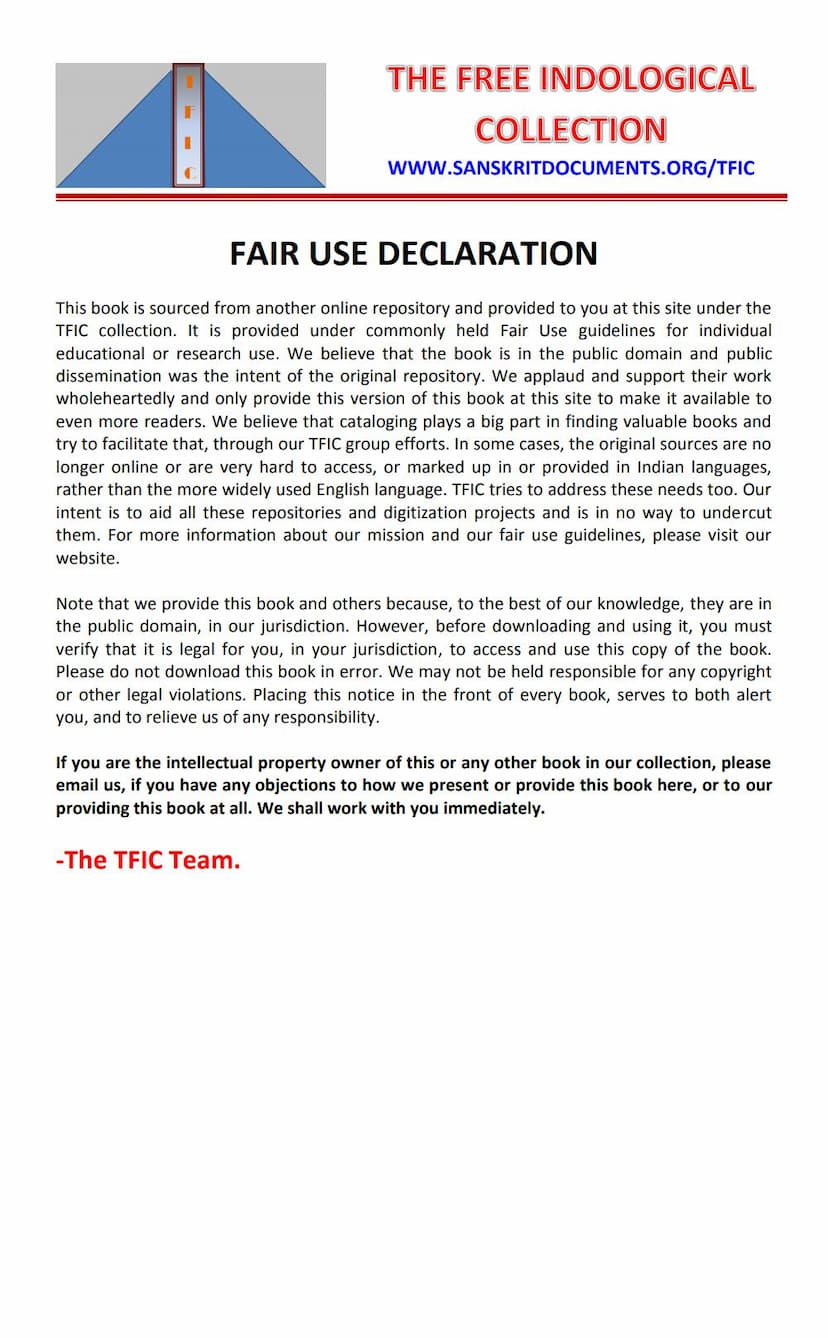Jain Darshan
Added to library: September 1, 2025

Summary
The book "Jain Darshan" by Mohanlal Mehta, published by Sanmati Gyan Pith Agra, is a comprehensive introduction to Jain philosophy. It aims to present the core tenets of Jainism in a clear and accessible manner, suitable for both students and general readers interested in Indian philosophy.
The book begins by exploring the relationship between Dharma (Religion), Darshan (Philosophy), and Vigyan (Science), highlighting their interconnectedness and distinct methodologies in the pursuit of truth. It delves into the origins and definitions of religion and philosophy, emphasizing that philosophy is fundamentally a way of "seeing" or understanding life and the universe, driven by intellect and contemplation.
Key themes and chapters covered in the book include:
- Jain Dharma and its Foundations: It traces the historical and literary development of Jainism, from the Agam era through various stages of philosophical articulation and commentary by prominent Acharyas. It discusses the significance of Jain tradition within the broader Indian intellectual landscape.
- Core Jain Philosophy: The book elaborates on fundamental Jain concepts such as:
- The Nature of Reality (Tattva): Jainism posits a pluralistic view of reality, encompassing six Dravyas (substances): Jiva (soul), Ajiva (non-soul), Pudgala (matter), Dharma (medium of motion), Adharma (medium of rest), and Kala (time).
- Karma Theory: A central doctrine, the book explains the intricate workings of karma, its bondage, processes, types, duration, intensity, and the ultimate goal of liberation from karmic cycles. It distinguishes Jain karma theory from determinism, emphasizing the role of free will within certain limits.
- Epistemology (Pramana and Naya): It details the Jain theory of knowledge, discussing the valid sources of knowledge (Pramana) such as perception (Pratyaksha) and inference (Anumana). It also elaborates on the theory of Naya (partial standpoints) which allows for multiple perspectives on reality, a concept closely linked to Syadvada.
- Syadvada and Anekantavada: The book extensively covers these cornerstone principles of Jainism. Syadvada, the doctrine of "perhaps" or "conditionally," asserts that reality is multifaceted and can be described from various standpoints. Anekantavada, the doctrine of manifoldness, posits that reality possesses infinite qualities, and no single perspective can capture its entirety. The book highlights how these doctrines promote tolerance and understanding.
- The Soul (Jiva) and its Nature: It explains the concept of the soul as an independent, conscious entity, distinct from matter. It details the soul's qualities, states (bound and liberated), and the path to its purification.
- The World (Loka) and its Structure: Jain cosmology describes a finite, self-contained universe composed of the six Dravyas, organized into various realms.
- The Nature of Reality (Sat): The Jain perspective on existence is presented as relative, characterized by both permanence (Dhruva) and change (Paryaya), an approach that avoids extreme views of eternalism or annihilationism.
- Jain Ethics and Practice: While primarily philosophical, the book touches upon the ethical implications of Jain thought, particularly the principle of Ahimsa (non-violence) as the supreme virtue.
- Historical and Literary Development: It provides an overview of the evolution of Jain literature and philosophy from the Agam Sutras through commentaries and subsequent philosophical works by eminent Acharyas. It also touches upon the historical context and influences on Jain thought, including its relationship with other Indian philosophical schools.
- Comparison with other Philosophies: The book engages in comparative analysis, contrasting Jain doctrines with those of other Indian philosophical traditions like Vedanta, Buddhism, Nyaya, and Vaisheshika, as well as Western philosophical schools like Idealism and Realism.
The author, Mohanlal Mehta, is presented as a learned scholar, and the book is praised in the introductory remarks by Upadhyay Amar Muni Muni and Pt. DalSukh Malvaniya for its comprehensive coverage, clear language, and insightful analysis of complex philosophical topics. The book aims to bridge the gap between profound philosophical concepts and the understanding of the general reader, making Jain Darshan accessible to a wider audience.